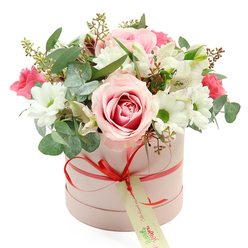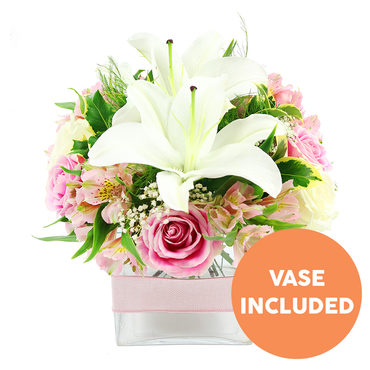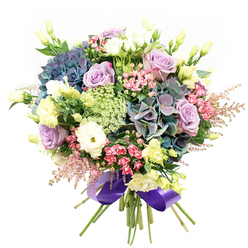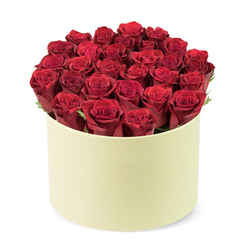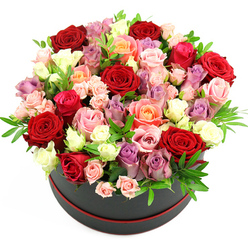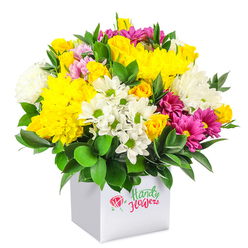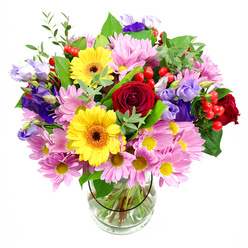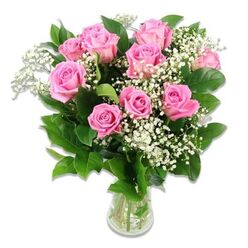Funeral Flowers Cowley UB8

Funeral Flowers: A Comprehensive Guide
Introduction
Funeral flowers play a pivotal role in honoring and celebrating the life of a loved one who has passed away. They offer comfort and convey heartfelt emotions during times of grief. Understanding the significance, types, and customs associated with funeral flowers can help in making appropriate choices and providing solace to the bereaved family.
Significance of Funeral Flowers
Funeral flowers symbolize love, respect, and sympathy. They provide a visual tribute to the deceased, often representing the cycle of life and the beauty of transformation. The tradition of using flowers in funeral ceremonies dates back centuries and continues to be a universal gesture of condolence.
Types of Funeral Flowers
There are various types of funeral flower arrangements, each serving a distinct purpose:
1. Funeral Wreaths
Wreaths are circular arrangements symbolizing eternal life. They are commonly placed on the casket or displayed during the service.
2. Casket Sprays
Casket sprays are lush, elegant flower arrangements placed over the casket. They offer a beautiful and dignified tribute.
3. Standing Sprays
Standing sprays are displayed on easels and positioned near the casket or at the entrance of the service venue. They create a striking and heartfelt focal point.
4. Floral Baskets
Floral baskets can be placed anywhere in the service area, providing flexibility in arrangement and adding a touch of warmth and comfort.
5. Inside Casket Flowers
These small, delicate arrangements are placed inside the casket, often chosen by close family members as a personal tribute.
Choosing the Right Flowers
Selecting the appropriate flowers for a funeral involves several considerations:
1. Cultural and Religious Customs
Different cultures and religions have unique customs and preferences regarding funeral flowers. It's essential to be mindful of these traditions to show respect and understanding.
2. Relationship with the Deceased
Consider your relationship with the deceased when choosing flowers. Immediate family members may opt for more elaborate arrangements, while friends and colleagues might choose simpler tributes.
3. Personal Preferences
Personalize the arrangement by selecting flowers that held special meaning for the deceased or that reflect their personality.
Common Flowers Used in Funerals
Certain flowers are traditionally associated with funerals due to their symbolism:
1. Lilies
Lilies symbolize the restored innocence of the soul of the deceased. They are a classic choice for funeral arrangements.
2. Roses
Roses convey love and respect. Different colors have different meanings: red for love, yellow for friendship, and white for purity.
3. Carnations
Carnations are long-lasting and represent admiration and remembrance. They are available in various colors, each carrying unique significance.
4. Chrysanthemums
Chrysanthemums are widely used in funeral arrangements, symbolizing death in many cultures, especially in Europe and Asia.
5. Orchids
Orchids convey eternal love and delicate beauty. They are chosen for their elegance and grace.
How to Send Funeral Flowers
Sending funeral flowers involves several steps:
1. Determine the Venue
Confirm the location of the funeral service and whether the venue accepts flower deliveries.
2. Select the Arrangement
Choose an arrangement appropriate for your relationship with the deceased and the type of service.
3. Add a Personal Note
Include a heartfelt message of sympathy. Keeping it brief and sincere is key.
4. Ensure Timely Delivery
Coordinate with the florist to ensure the flowers are delivered in time for the service.
Caring for Sympathy Flowers at Home
Sympathy flowers sent to the home of the bereaved can offer ongoing comfort. Here are tips for caring for these flowers:
1. Place in a Cool Area
Ensure the flowers are placed in a cool, well-ventilated area, away from direct sunlight.
2. Water Regularly
Keep the water fresh and change it regularly to maintain the flowers' longevity.
3. Remove Wilted Flowers
Remove wilted or dead flowers promptly to keep the arrangement looking fresh.
Environmental Concerns
In recent years, there has been a growing awareness of the environmental impact of funeral flowers. Here are some eco-friendly practices:
1. Choose Local and Seasonal Flowers
Opt for locally sourced, seasonal flowers to reduce the carbon footprint.
2. Reusable Containers
Select arrangements in reusable or biodegradable containers.
3. Organic Flowers
Consider flowers grown without the use of harmful pesticides and chemicals.
Conclusion
Funeral flowers hold deep symbolic meaning and are an essential part of memorializing a loved one. By understanding the types, significance, and appropriate choices for funeral flower arrangements, you can provide solace, honor, and a final tribute to the departed. Whether traditional or eco-friendly, each flower arrangement helps in expressing emotions where words often fall short.
FAQs on Funeral Flowers
Q1: What color flowers are appropriate for a funeral?
White flowers are a classic choice symbolizing purity and peace, while red symbolizes love and respect. It is important to consider cultural and personal preferences when choosing the color of funeral flowers.
Q2: How soon should funeral flowers be delivered?
Funeral flowers should ideally be delivered on the day of the service or wake. Coordinating with the florist for timely delivery is essential.
Q3: Is it appropriate to send flowers to the family's home after the funeral?
Yes, sending sympathy flowers to the family's home offers ongoing comfort and reminds them of your support after the funeral.
Q4: Can I personalize a funeral flower arrangement?
Absolutely. Adding personal touches, such as the deceased's favorite flowers or colors, can make the arrangement more meaningful.
Q5: Are there alternatives to traditional funeral flowers?
Yes, some people choose living plants, donation to a charity in the deceased's name, or other memorial keepsakes as alternatives to traditional funeral flowers.






